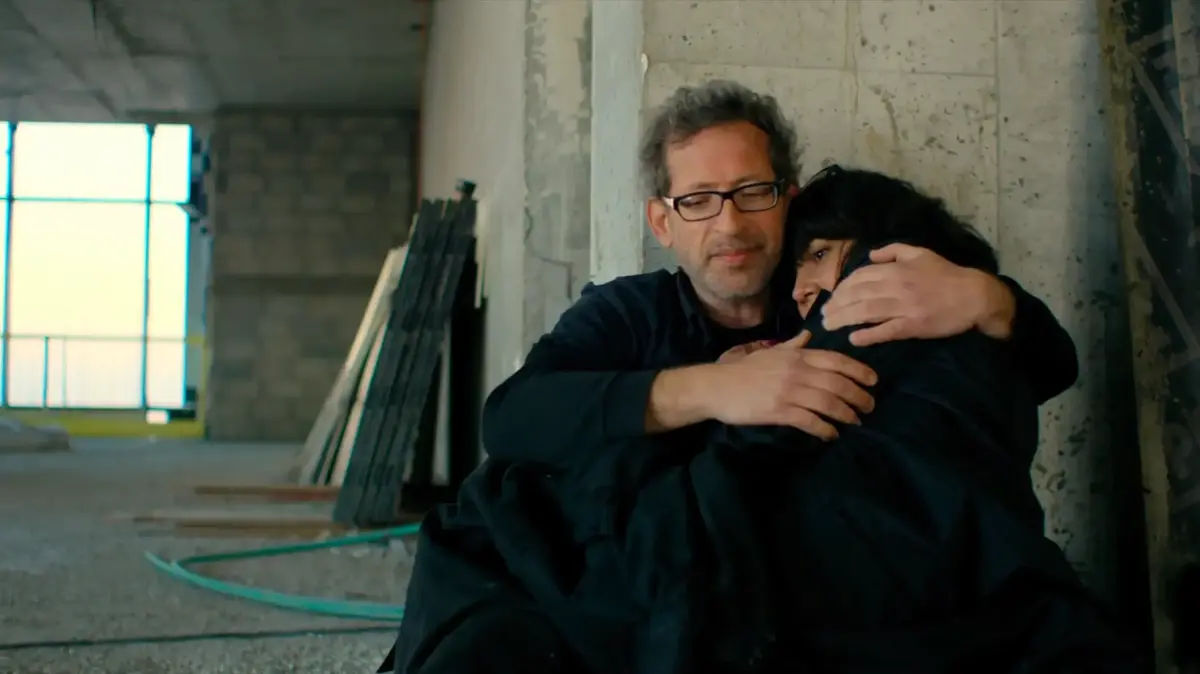Last week, the Ophir Awards ceremony was held
, where the film "Let There Be Morning" was chosen to represent us in the competition for the Oscars.
The film is based on the book by Sayed Kashua, a talented and successful Arab-Israeli writer and screenwriter who immigrated to the United States. Suleiman, won the Best Actress award. Suleiman found it appropriate to boycott the ceremony, but sent a speech in which she explained why she was not happy about winning, describing Israel as a colonialist country that performs ethnic cleansing. Director Eran Kolirin read the letter in full. this.
Since the 1950s, the state has tried in various ways to overwhelm Israeli cinema, and since the 1980s, it has been determined that Israeli cinema will also be of high quality. To this end, the "Fund for the Encouragement of Quality Films" was established, which changed its name to the "Film Fund". Through it and through the "Rabinowitz Foundation" we flow tens of millions of shekels a year so that we do not get stuck here with more thrillers, which broke box office records in the 1970s. Or, God forbid, no more Ephraim Kishon, George Ovadia and Menachem Golan will rise here. Such filmmakers may even rebel against the Quality Council and fill halls.
Thus, cultural gatekeepers have been carefully selected to sort scripts according to their quality. For several years I was one of them, a lecturer at the Film Foundation, and I still remember the absolute naturalness with which I was given my right to approve or reject a script. I especially remember the peace of mind with which I sculpted Reshef Levy's script for "Colombian Love." The film was eventually made without funding from the foundation and was watched by 20,000 more people than those who came to watch the film "Singing the Siren", whose script I wrote a few years earlier. My screenplay received NIS 250,000 from the foundation, and it was clear that I thought it was unworthy of it - like any screenwriter trying to pass a lecturers' committee. We the artists are sure that the approval of an expert committee is our innate right. Some of us confused the approval of a committee with the love of the audience.
The discussion about the degree of anti-Israelism that emerges in Israeli films is an important one, and it joins an equally important issue: Does the Israeli audience have the right to speak about films that are forced to fund it? Here the answer has been given for a long time, and it is "no" deafening. The state covers 40% of the cost of producing the films. Another 15% come from foreign funds (who probably prefer films with a certain political content). The rest from private sources. Every year, the state transfers NIS 80 million to the cinema - about half of them to full-length feature films, and these are divided according to the eyes of members of a limited club, barely 50 people, who sit on the tap, and are the first and last judges: who will make a film, who will receive an award. The state only needs to sign the check, and the audience is not counted. This whole celebration is not for him.
Eran Kolirin, our representative for the Oscars
, is one of the golden boys of the system. In 1999, the Film Foundation supported his film "Tzur Hadassim". We paid 600,000 shekels, but only 2,000 people bothered to show up at the cinemas. In 2007 we put 450,000 shekels on him to make the "orchestra visit". The film did a good job and brought a quarter of a million Israeli viewers to the theaters. In light of the success, we provided Kolirin with funding for his film "Replacement", which cost us NIS 2 million. It is a pity that only 4,200 Israelis bought tickets. His next film, "Beyond the Mountains and the Hills," funded by the Rabinowitz Foundation, brought a flood of theaters to 25,000 viewers, which explains the Film Foundation's decision to put another NIS 2 million of our money on it in favor of "Let There Be Morning." The investment paid off, if not in terms of viewers, at least in attending festivals abroad.Because the Arab actors boycotted the screening in protest that the film is defined as Israeli.
The method of radiation and lecturers drove viewers out of the halls, even before we talked about how Israeli films present the Israeli-Palestinian conflict and which side they are in favor of. What is certain is that they are not on the side of the local public, and not just politically.
Of the 50 most successful Israeli films of all time, only four were selected and funded by the screenings. And if we expand the list to the 100 most successful films, also in this list, most of them were created before we imposed the strainer of the lector aristocracy on them. Israeli cinema prospered, then was abducted and imprisoned in foundations aimed at funding an expensive hobby of a small group of creators, and to allow an even smaller group to determine the character of the entire Israeli cinema, and protect it from the love of local audiences. And if God forbid the funds fund a successful creator like Avi Nesher, who put five films on the list of one hundred Israeli box office hits - the members of the Film Academy are careful not to vote for him for the Ophir Prize.
According to a study by Ziv Maor
from the Ecclesiastical Forum, between 2011 and 2013, about 95 full-length Israeli feature films were produced, with a total cost of NIS 286 million. In those years, about two million tickets were sold, generating revenue of NIS 52 million. The huge gap between investment and revenue is indicative of the failure of the government support mechanism. Not just a loser, but he has no intention or desire to succeed. 80% of the state's investment in cinema goes to the bank account and the ego padding of prestigious country club members, albeit very small.
Year after year, Israelis reject the gift of quality cinema, and insolently insist on not considering the opinions of lecturers, members of the Israeli Film Academy, or the jury at the Plastic Ezra Festival in Dombrova-Gornitsa.
Israelis insist on loving what they want, not what forced them to finance.
And when they love - they love.
This year, a million Israelis, of their own free will, bought tickets to the film "Release My Edge", making it the fourth film in the list of successful films.
Like all its members in the opening ten - it was done without public funding and without a lecturers' committee.









